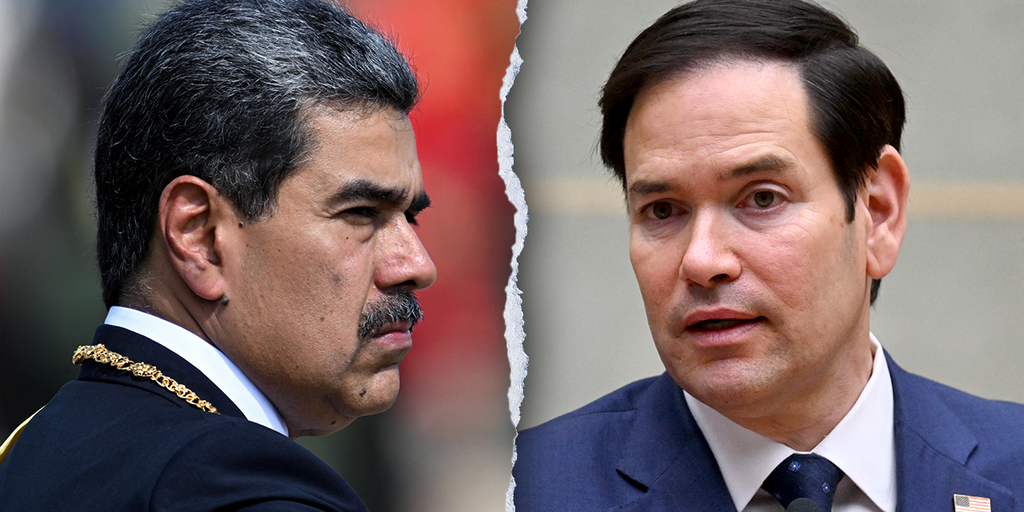US diplomat Marco Rubio pledges deeper security support for Ecuador while escalating attacks on Venezuela’s Nicolás Maduro, calling him a “fugitive of American justice” as US warships move closer to Venezuela.

Rubio Steps Into Regional Spotlight
Marco Rubio, one of Washington’s most prominent voices on Latin American policy, has intensified US engagement in the region. During a visit to Quito, Rubio pledged greater security support for Ecuador, framing it as a frontline partner in the fight against transnational crime.
At the same time, Rubio sharpened his rhetoric against Venezuela’s Nicolás Maduro, labeling him a “fugitive of American justice.” His comments coincided with the deployment of US warships off Venezuela’s coast, fueling speculation of heightened pressure on Caracas.
Security Aid to Ecuador
Ecuador has faced a dramatic surge in drug-related violence, kidnappings, and cartel activity over the past two years. President Daniel Noboa has declared parts of the country under emergency measures, seeking US support to stabilize security.
Rubio’s remarks in Quito reflected Washington’s intent to deepen cooperation. “Ecuador is not alone,” he stated. “The United States will stand by its partners against organized crime and corruption.”
According to US officials, discussions included new funding for counter-narcotics operations, intelligence sharing, and maritime security patrols. The focus is to prevent Ecuador from becoming a critical trafficking hub for cocaine and other illicit goods.
A Direct Attack on Maduro
While pledging aid to Ecuador, Rubio turned his attention to Venezuela, accusing Maduro of evading accountability. “He is not a legitimate president. He is a fugitive of American justice,” Rubio said, referencing US indictments against Maduro for drug trafficking and corruption.
The timing of the statement was notable. Over the past week, the Pentagon has confirmed the positioning of naval assets in the Caribbean near Venezuela, officially described as “routine deployments.” Still, analysts believe the show of force signals Washington’s readiness to apply further pressure.
US Strategy in Latin America
Rubio’s dual message—supporting Quito while isolating Caracas—illustrates a broader US strategy. On one hand, Washington is reinforcing democratic allies like Ecuador and Colombia. On the other, it continues to target authoritarian regimes aligned with powers such as Russia, China, and Iran.
“Rubio is laying the groundwork for a tougher stance that combines security partnerships with diplomatic pressure,” said Carolina Jiménez, a regional policy analyst. “Ecuador becomes a showcase of US cooperation, while Venezuela remains the example of what Washington opposes.”
Regional Reactions
Ecuador welcomed the pledge of assistance. Officials in Quito said the partnership would strengthen the country’s ability to fight cartels while protecting democratic institutions.
In Venezuela, state media condemned Rubio’s remarks as “imperialist aggression.” Maduro himself responded, dismissing Rubio as “an irrelevant spokesman for Washington’s outdated policies.”
Neighboring countries remain cautious. Colombia urged restraint, warning that escalating rhetoric risks inflaming tensions across the Andean region. Brazil called for dialogue, stressing that military deployments in the Caribbean could destabilize trade and security.
What’s Next?
The coming months will test whether Rubio’s promises translate into tangible gains for Ecuador’s security forces. Analysts warn that while US support is significant, addressing violence requires deeper reforms in policing, justice, and governance.
For Venezuela, the US appears determined to maintain pressure. With sanctions still in place and naval activity increasing, Washington is signaling it will not ease up on Maduro’s government.
Rubio’s intervention places him at the center of US-Latin American policy, projecting a hard line against authoritarianism while offering aid to struggling democracies. Whether this strategy stabilizes the region—or heightens tensions—remains to be seen.










Comments are closed.